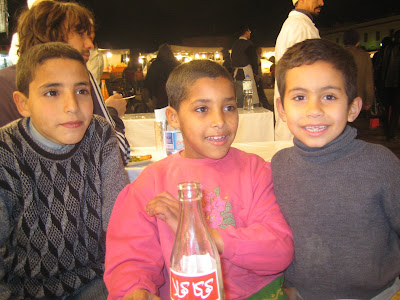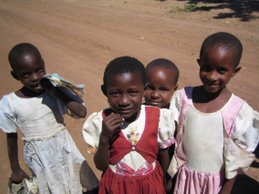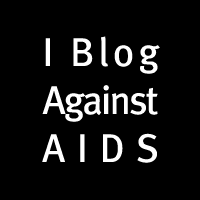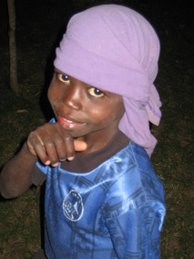More Famous than Ben Affleck
On Thursday a delegation of VIPs from the Congo and UNHCR came to talk to the refugees. I asked if I could bring the bub and the Cripple along in the afternoon as we would just be sitting and listening to people talk (and I’ve learned that in Rwanda people really like to talk, so it would probably be quite a long event). The camp director said sure I could bring her, but we would be mobbed so it was my decision to make. I didn’t quite believe her.
See, everywhere we go crowds of people come to wave and shake and the bubs hand. She loves the attention! The first time I took her into the camp she probably drew a crowd of about a hundred children, and she was a bit scared (she was also not feeling very well and had just had a nasty shot), but she went in again the next day for a check up and just waved when all the children came up to her. Every day the Cripple takes her out on walks and she draws crowds of children from the nearby school that come and shake her hands and stroke her head. She blows kisses and raspberries at them. When the Cripple takes her into church she sings along with the music and spends all her time trying to get to the other children. So I figured she’d be happy to get the attention.
As soon as we arrived I realised I’d vastly underestimated the scale of the event. I think virtually every refugee (and there are about 18,000 of them) had come to hear the speakers. There were so many hoards of people small children had climbed up the basketball basket – I really can’t imagine how – and were sitting on the hoop or hanging off the net in order to get a better view!
The delegates were just beginning to talk so we were quickly ushered around the side to the benches behind them. Though there were a few, mostly older, refugees sitting behind us on the few seats provided for VIPs, the vast majority of the many thousand attending were standing in front of us. Behind us a refugee who I’d met the week before was sitting. He offered to translate the proceedings for us and sat there diligently writing what was said. After a good hour and a half the talk finished and we thanked him profusely for his kindness. Apparently the delegates had come to try to talk the refugees into going back the Congo. They were promised their houses and property back and told the situation is secure enough for them to go. We asked the refugee what he thought of this and he gave a rather neutral answer (I should point out, all the delegates were still sitting in the row in front of us).
As we were a bit distracted talking to the people behind us we didn’t notice all the VIPs leaving. Suddenly I realised there was just us and a few thousand refugees left. As we came round the side of the shelter a huge wave of children surged forward. I suddenly realised what the camp director had meant.
Oh dear. The Cripple and I made our way, as best we could, in the direction of what we thought were the NGO vehicles in the medical centre. The children, absolutely fascinated by the bub, screamed in joy and threw all their weight into getting close enough to touch us. Some of the refugee guards stepped in and tried to keep the children back by hitting their legs with switches. We were appalled, but really, there seemed to be no alternative. We finally get through to a space in the crowd and groan when we realise we’ve come to the UNHCR boarding point, not our own. The medical centre is back around a long fence that literally thousands of children seem to be hanging off and squashed up behind.
The Cripple and I made our way, as best we could, in the direction of what we thought were the NGO vehicles in the medical centre. The children, absolutely fascinated by the bub, screamed in joy and threw all their weight into getting close enough to touch us. Some of the refugee guards stepped in and tried to keep the children back by hitting their legs with switches. We were appalled, but really, there seemed to be no alternative. We finally get through to a space in the crowd and groan when we realise we’ve come to the UNHCR boarding point, not our own. The medical centre is back around a long fence that literally thousands of children seem to be hanging off and squashed up behind. Starting to get a bit frantic I ask the single police officer if there is a back way to the medical centre. He says no and turns his back on us. Not two seconds later the fence starts to collapse and dozens of children fall off. The police officer rushes over and says yes, there is a back way. We follow someone as fast as we can away from the hoards.
Starting to get a bit frantic I ask the single police officer if there is a back way to the medical centre. He says no and turns his back on us. Not two seconds later the fence starts to collapse and dozens of children fall off. The police officer rushes over and says yes, there is a back way. We follow someone as fast as we can away from the hoards.
After ten minutes of speed walking through a maze of locked gates we’re back in the medical centre. The camp director laughs at us and says “see I told you you’d be mobbed.” A couple of months ago Ben Affleck came to visit the camp. As hundreds of children squash their faces up to the fence to get a better look, I ask the camp director if they acted the same way when he visited. “No, no, no. She’s more famous than Ben Affleck!” While waiting in the security of the compound, we thought about the talks we’d just heard. We wondered how, twelve or thirteen years on, authorities could know which house belonged to whom, and even if the houses were still standing. I asked some other refugees in the medical centre what they thought. One of them said “How can I return? The Interahamwe have taken our village. They live their now.” That night one of the staff at the NGO we’ve been staying with commented that there was conflict in the region they fled from last week. Over the weekend an NGO worker in North Kivu (the area the refugees fled from) said with astonishment “But the Interahamwe are in their villages!”
While waiting in the security of the compound, we thought about the talks we’d just heard. We wondered how, twelve or thirteen years on, authorities could know which house belonged to whom, and even if the houses were still standing. I asked some other refugees in the medical centre what they thought. One of them said “How can I return? The Interahamwe have taken our village. They live their now.” That night one of the staff at the NGO we’ve been staying with commented that there was conflict in the region they fled from last week. Over the weekend an NGO worker in North Kivu (the area the refugees fled from) said with astonishment “But the Interahamwe are in their villages!”














.jpg)
























